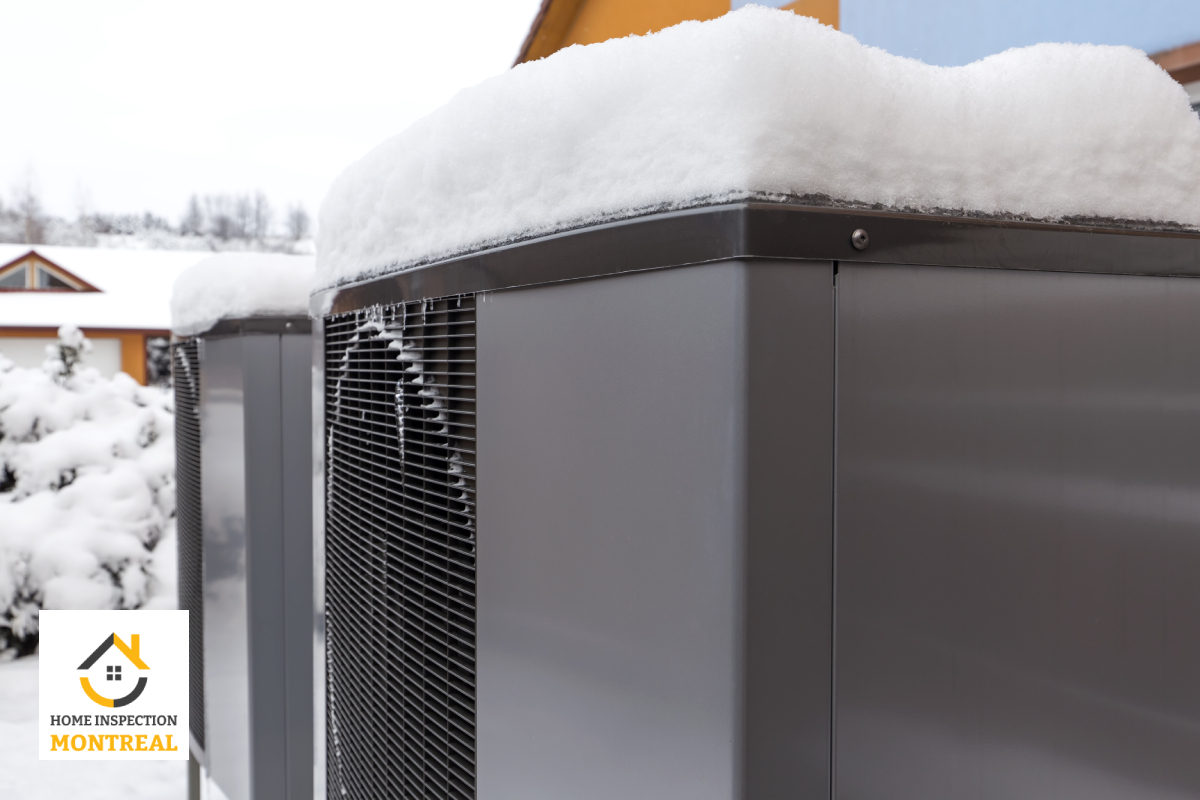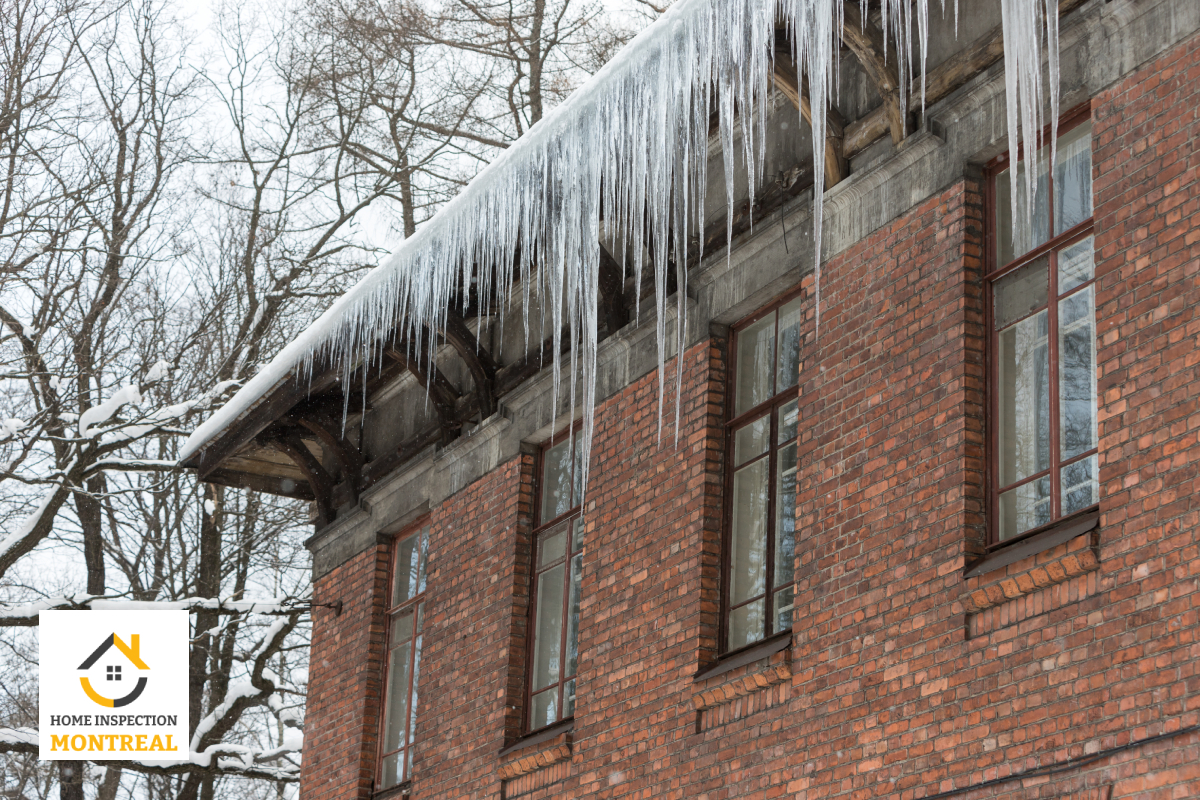Home Inspection in Winter in Montreal, Canada
In the heart of Canada, where winter paints the city of Montreal with its icy brush, the importance of a thorough home inspection cannot be overstated.
The winter season, with its unique challenges and beauty, significantly influences the real estate market, particularly in aspects related to home inspections. This comprehensive article delves into the nuances of home inspection during Montreal’s winter months, highlighting the critical focus areas, the challenges posed by the cold weather, and, ultimately, why Farzin Sedaghat stands out as a premier choice for home inspections in the region.
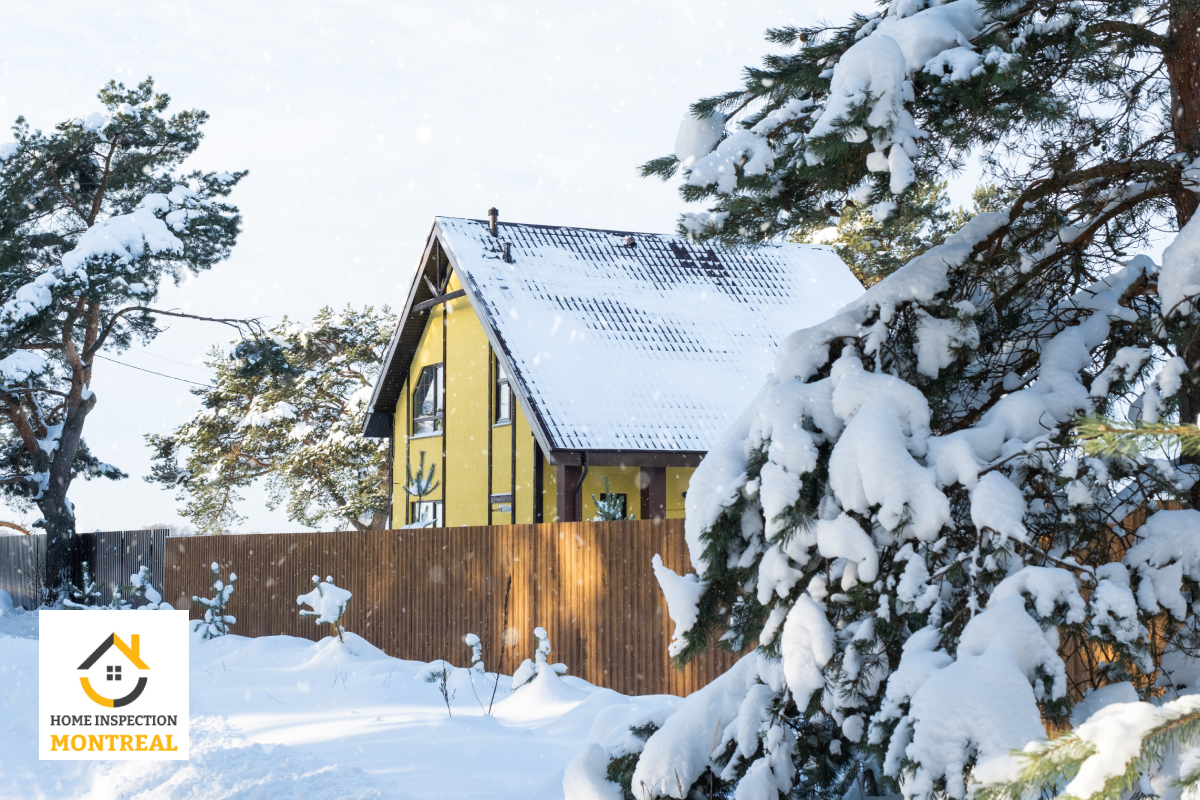 For buyers, a thorough home inspection is essential for identifying hidden defects that might require significant financial investment. This knowledge can influence negotiation strategies regarding price adjustments or repair requests. Sellers benefit from preemptively identifying and addressing issues, facilitating smoother transactions, and potentially enhancing property value.
For buyers, a thorough home inspection is essential for identifying hidden defects that might require significant financial investment. This knowledge can influence negotiation strategies regarding price adjustments or repair requests. Sellers benefit from preemptively identifying and addressing issues, facilitating smoother transactions, and potentially enhancing property value.
Understanding Home Inspection in Winter
Home inspection is a crucial step in home-buying, offering potential buyers an unbiased and professional assessment of the property’s condition. This process becomes even more critical in Montreal, where winters are notably harsh. The extreme cold, snow, and ice can exacerbate or reveal underlying issues within a property, making the winter season an optimal time for a thorough examination.
Critical Areas of Focus During Winter Inspections
Winter inspections in Montreal necessitate focusing on several critical areas that may be less prominent or problematic in warmer climates. These include:
Insulation and Ventilation:
Adequate insulation and ventilation are crucial for maintaining a comfortable indoor temperature during Montreal’s freezing winters. Inspectors pay close attention to the attic, walls, and basements to ensure insulation is intact and sufficient. Ventilation systems are also checked for proper operation to prevent moisture buildup, which can lead to mold growth.
Insulation is designed to keep warm air inside the home and cold air outside, thereby reducing the heating demand and enhancing comfort. During winter inspections, professionals pay close attention to several key aspects:
- Thickness and Type of Insulation: Inspectors assess whether the attic, walls, and floor insulation is adequate for Montreal’s winter temperatures. They check the type of insulation (fiberglass, cellulose, foam, etc.) and its R-value, which indicates its thermal resistance. Higher R-values signify better insulation properties.
- Uniformity and Gaps: Inspectors look for uniform coverage of insulation material. Gaps, compression, or insulation displacement can lead to cold spots within the home, increasing the risk of discomfort and higher heating costs.
- Moisture and Water Damage: Insulation that has been wet or is currently damp loses its insulative properties and can become a breeding ground for mold. Inspectors check for signs of moisture intrusion and water damage, particularly in areas prone to leaks.
- Ventilation Points: Proper ventilation prevents moisture buildup within insulated areas. Inspectors ensure that soffit vents in the attic are not blocked by insulation, allowing for adequate airflow.
Ventilation Inspection:
Proper ventilation is critical in winter to manage indoor air quality and moisture levels. A well-ventilated home helps prevent condensation accumulation, which can lead to mold growth and structural damage. During a winter home inspection, the ventilation system is scrutinized:
- Exhaust Systems: Inspectors check that kitchen, bathroom, and dryer vents are functioning correctly and venting to the outside, not just into the attic or crawl space. This ensures that moisture and odors are being effectively removed from the home.
- Air Exchange Systems: Homes, especially newer, tightly-sealed ones, may have heat recovery ventilators (HRVs) or energy recovery ventilators (ERVs) to manage air exchange without significant heat loss. Inspectors test these systems to ensure they are operational and efficiently exchanging indoor and fresh outdoor air.
- Attic Ventilation: Proper attic ventilation prevents the buildup of ice dams on the roof by maintaining a cold roof temperature. Inspectors look for adequate intake and exhaust ventilation in the attic to ensure airflow balance, which helps regulate temperature and moisture levels.
- Condensation on Windows: While not a direct part of the ventilation system, excessive condensation on windows can indicate poor ventilation. Inspectors note this as a potential sign that the home’s ventilation system may not handle the humidity levels, suggesting a need for improvement.
Insulation and ventilation are integral to a home’s defense against the cold and moisture associated with Montreal’s winters. A thorough inspection of these systems can reveal how well a home is protected against the cold and its overall energy efficiency and air quality.
Potential homebuyers should pay close attention to the findings of insulation and ventilation inspections, as addressing any deficiencies can lead to significant improvements in comfort, health and savings on heating costs. A detailed inspection report can guide necessary upgrades or maintenance to ensure the home remains cozy, dry, and efficient throughout winter.
Heating Systems Inspection:
The heating system is the heart of a home during winter. Inspectors thoroughly assess the condition and efficiency of furnaces, boilers, and heat pumps. They look for signs of wear and tear, assess the system’s age, and recommend maintenance or replacement if necessary.
Components of Heating Systems Inspection
Furnace and Boiler Inspection:
- Visual Examination: Inspectors start with a visual check of the furnace or boiler, looking for signs of corrosion, leaks, or damage to the unit.
- Operation Cycle: They will run the system to ensure it operates correctly through an entire heating cycle, from ignition to shut off.
- Ventilation System: The exhaust and ventilation systems are critical for safety, especially in gas furnaces. Inspectors check for blockages or leaks that could lead to dangerous carbon monoxide buildup.
- Filters: The inspection includes checking the air filters, which should be clean to maintain air quality and system efficiency.
- Thermostat Calibration: Ensuring the thermostat is accurately calibrated is crucial for proper operation. Inspectors may check if the system responds appropriately to thermostat settings.
Heat Pump Inspection:
- Visual Check: Heat pumps like furnaces are inspected for wear or damage.
- Performance Test: Inspectors may perform performance tests to assess the heat pump’s efficiency and ability to maintain comfortable temperatures.
- Refrigerant Levels: Proper refrigerant levels are vital for a heat pump’s operation. Inspectors check for leaks and ensure levels are within the recommended range.
- Defrost Mode: The defrost mode is critical for a heat pump’s efficiency in winter. Inspectors verify that this function operates correctly to prevent ice buildup.
Ductwork Inspection:
- Leakage and Insulation: Ductwork is inspected for leaks, which can significantly reduce a heating system’s efficiency. Proper insulation of ducts is also checked to prevent heat loss.
- Air Flow: Inspectors may assess airflow in various home parts to ensure the duct system distributes heat evenly.
Safety Checks:
- Carbon Monoxide Detectors: Inspectors verify the presence and functionality of carbon monoxide detectors in homes with combustion heating systems.
- Safety Switches and Controls: Checking safety switches and controls to ensure they function correctly can prevent accidents.
Importance of Heating System Inspection in Winter
- Preventive Maintenance: Identifying and addressing minor issues before they become major problems can save homeowners significant repair costs and inconvenience.
- Energy Efficiency: A well-maintained heating system operates more efficiently, reducing energy consumption and lowering utility bills.
- Safety: Most importantly, inspections can uncover safety hazards, such as gas leaks or electrical issues, ensuring the occupants’ safety.
In Montreal’s harsh winters, the importance of a comprehensive heating system inspection cannot be understated. It ensures the comfort and warmth of the home’s occupants, their safety, and the system’s efficiency. By thoroughly inspecting the heating system, potential issues can be identified and rectified before they escalate into costly repairs or pose significant risks to the household. As such, a detailed heating system inspection forms a crucial component of the broader home inspection process, particularly in regions subject to extreme winter conditions.
Plumbing Inspection:
Freezing temperatures pose a significant risk to plumbing. Inspectors examine pipes for insulation and signs of potential freezing. They also assess the water heater’s condition and other plumbing fixtures to ensure they are winter-ready.
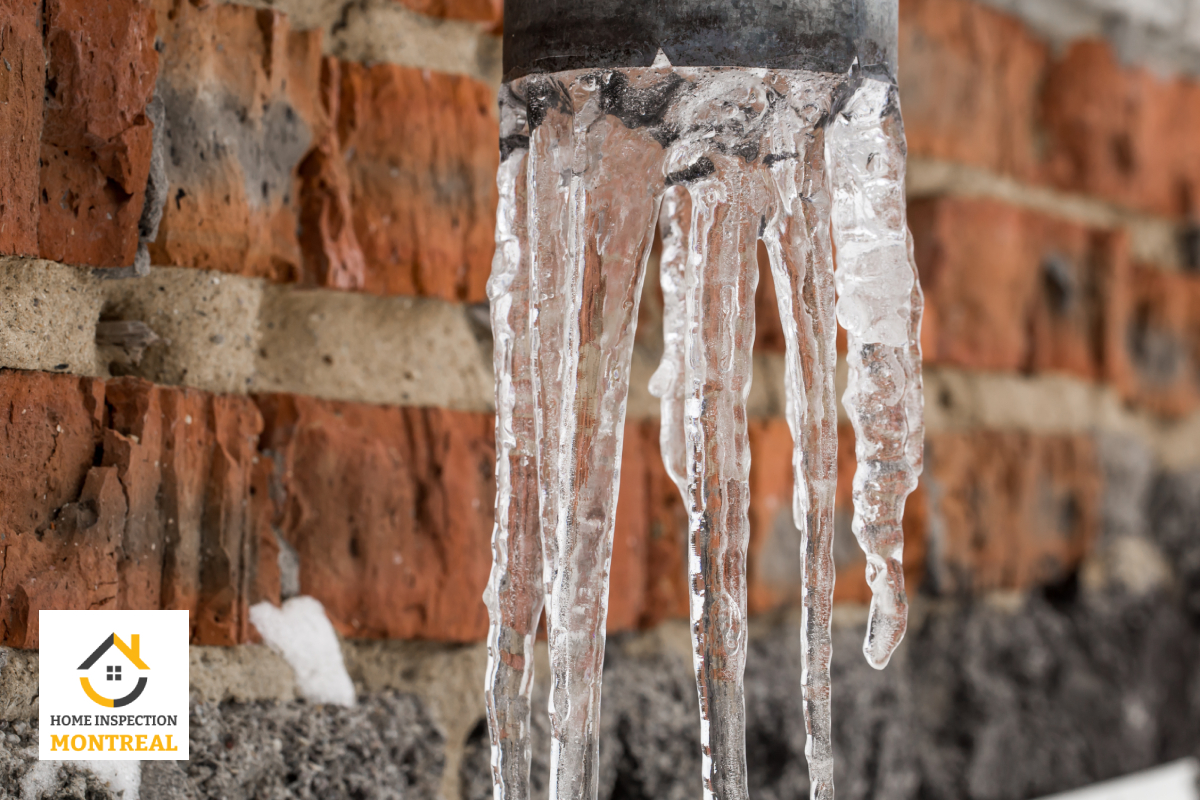 Plumbing inspection during the winter months in Montreal, Canada, takes on a heightened level of importance due to the severe cold weather conditions typical of this region. The plummeting temperatures can lead to frozen pipes, which may burst and cause significant water damage to a property. A thorough plumbing inspection can identify potential problems and prevent costly repairs. Here, we delve deeper into what a winter plumbing inspection entails, the specific areas of focus, and the preventive measures that can be taken to mitigate risks associated with winter weather.
Plumbing inspection during the winter months in Montreal, Canada, takes on a heightened level of importance due to the severe cold weather conditions typical of this region. The plummeting temperatures can lead to frozen pipes, which may burst and cause significant water damage to a property. A thorough plumbing inspection can identify potential problems and prevent costly repairs. Here, we delve deeper into what a winter plumbing inspection entails, the specific areas of focus, and the preventive measures that can be taken to mitigate risks associated with winter weather.
Critical Aspects of Winter Plumbing Inspection
Pipe Insulation and Vulnerability Assessment:
The first step in a winter plumbing inspection is to check the insulation of pipes, especially those in unheated areas such as basements, attics, garages, and exterior walls. Proper insulation helps prevent the water inside the pipes from freezing. Inspectors assess the condition and adequacy of existing insulation materials and recommend upgrades or replacements as necessary.
Faucet and Hose Bibb Inspection:
Outdoor faucets and hose bibbs are highly susceptible to freezing. Inspectors examine these fixtures for signs of wear, leaks, or damage and ensure they have been properly winterized. This typically involves shutting off the water supply to outdoor faucets and draining them to remove any remaining water that could freeze.
Water Heater Check-Up:
The water heater works harder during the winter months to provide hot water. Inspectors evaluate the unit for any malfunction, such as rust, leaks, or noises, which could indicate sediment buildup or component failure. They also verify the temperature setting to ensure it is efficient for winter use, typically around 120°F to 140°F (48°C to 60°C), to provide sufficient hot water while preventing scalding and conserving energy.
Sump Pump and Drainage Inspection:
Sump pumps are crucial for preventing basement flooding, especially when snow melts. Inspectors test the sump pump to ensure it’s operational and check the discharge line to prevent freezing. They also inspect drains to ensure they are clear of blockages that could cause backups, particularly in areas where snow and ice melting could lead to increased water flow.
Leak Detection and Repair:
Winter plumbing inspections also focus on detecting leaks, which can be more problematic in winter due to the potential for water to freeze and expand, exacerbating any damage. Inspectors use various methods, including visual inspections and pressure tests, to identify leaks in pipes, fixtures, and appliances.
Preventive Measures
Based on the findings of the plumbing inspection, inspectors recommend preventive measures to protect the plumbing system against harsh winter conditions. These may include:
- Installing insulating materials around pipes, especially in vulnerable areas.
- Seal leaks and insulate exterior walls to maintain higher temperatures in areas where pipes run.
- Keep opening cabinet doors during freezing spells to allow warm air to circulate pipes under sinks and enclosed spaces.
- Recommend the installation of frost-proof hose bibbs and using heat tape or thermostatically controlled heat cables to prevent freezing.
- Suggesting the maintenance or replacement of aging water heaters to ensure efficiency and reliability during winter.
Given the severe weather conditions, a comprehensive winter plumbing inspection is crucial for Montreal homes. It identifies potential problems that could lead to significant damage and offers homeowners peace of mind by ensuring their plumbing system is well-prepared for the cold. By focusing on insulation, the condition of water heaters, outdoor faucets, and sump pumps and implementing preventive measures, homeowners can significantly reduce the risk of plumbing issues during the winter season.
Roof and Gutters Inspections:
Snow and ice can cause extensive damage to roofs and gutters. Inspectors evaluate the roof’s condition, look for missing or damaged shingles, and assess the gutter system for proper drainage to prevent ice damming, which can lead to water infiltration.
Inspecting roofs and gutters during the winter months in Montreal, or any area that experiences harsh winter conditions, is a critical component of the overall home inspection process. This task is vital because the roof and gutter system significantly protect a home from adverse effects of winter weather, such as snow, ice, and freezing temperatures. If addressed, a practical inspection can identify potential problems that could lead to significant damage.
Roof Inspection in Winter:
The roof is one of the most crucial barriers between the harsh winter elements and the home’s interior. Here are critical aspects of roof inspections during winter:
Snow and Ice Accumulation
Inspectors look for signs of excessive snow and ice accumulation, which can burden the roof structure. This condition can lead to the roof sagging or, in extreme cases, collapsing if the weight exceeds the roof’s load-bearing capacity.
Ice Dams
Ice dams occur when heat escapes from the attic, melting the snow on the roof, refreezing the eaves, and forming a dam. This can prevent proper drainage and seeping water under the shingles and into the house. Inspectors check for signs of ice dam formation and the potential for water damage.
Condition of Roofing Materials
Inspectors examine the condition of shingles, tiles, or other roofing materials for signs of damage, such as cracks, splits, or missing pieces. In winter, brittle materials can be more susceptible to damage. The integrity of the roofing material is crucial for preventing water infiltration.
Ventilation
Proper attic ventilation is vital for maintaining a consistent temperature on the roof’s surface, minimizing the risk of ice dams. Inspectors assess ventilation systems to ensure they are functioning correctly.
Gutter Inspection in Winter
Gutters are essential for directing water away from the home’s foundation. During winter, the inspection of gutters focuses on several key points:
Blockages and Ice Formation
Inspectors look for blockages caused by debris, such as leaves and twigs, which can impede water flow. They also check for ice formation within the gutters, which can lead to gutters pulling away from the house or collapsing under the weight.
Downspouts
The condition and alignment of downspouts are inspected to ensure they effectively channel water away from the home’s foundation. Inspectors look for any signs of damage or disconnection.
Drainage
The overall effectiveness of the gutter system’s drainage is evaluated. Poor drainage can lead to water accumulation around the foundation, which, during freeze-thaw cycles, can cause foundational damage.
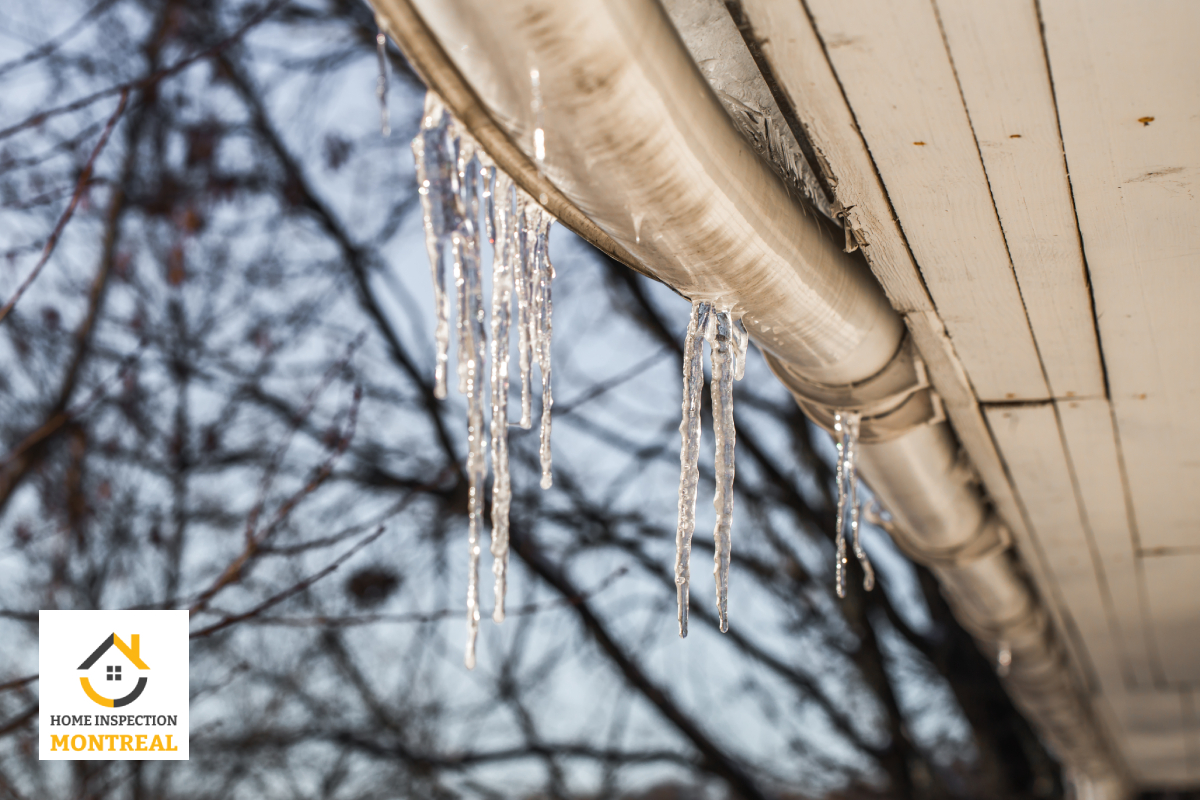 Challenges of Winter Roof and Gutter Inspections
Challenges of Winter Roof and Gutter Inspections
Conducting roof and gutter inspections in winter comes with challenges, including safety concerns due to slippery conditions and limited visibility of the roof’s condition under snow. Inspectors may rely on special tools and techniques, such as thermal imaging cameras, to assess the insulation and detect potential leaks without direct visualization.
A thorough inspection of the roof and gutters during winter in Montreal is indispensable for ensuring the longevity and safety of a home. By identifying and addressing issues such as ice dams, snow accumulation, and drainage problems, homeowners can prevent significant damage and maintain the integrity of their property through the winter season. Professionals conducting these inspections must be adept at navigating the unique challenges of the cold and snow to provide accurate and reliable assessments.
Windows and Doors
Drafty windows and doors can lead to significant heat loss. Inspectors check seals, frames, and installation quality to ensure they can withstand Montreal’s winter.
Window and door inspections are critical components of a comprehensive home inspection, especially during the winter months in places like Montreal, Canada, where harsh weather conditions can significantly impact a home’s energy efficiency and comfort. In winter, windows and doors are not just barriers to the cold but are crucial in maintaining a home’s warmth and structural integrity.
This section elaborates on the critical aspects of window and door inspection during winter, emphasizing the importance of thorough evaluation to ensure a home’s readiness for the cold season.
Evaluating Insulation and Seal Integrity
One of the primary focuses of window and door inspection in winter is assessing the insulation and seal integrity. Inspectors look for signs of wear and tear in the seals, such as cracking or hardening, which can lead to air leaks.
These leaks allow cold air to enter and let warm air escape, increasing heating costs and reducing comfort. Thermal imaging cameras may detect heat loss areas around windows and doors, visually representing where improvements are needed.
Checking for Condensation and Moisture Issues
Condensation on the interior of windows can indicate poor insulation or high indoor humidity levels, which can lead to moisture problems, including mold and mildew growth.
Inspectors check for condensation patterns and moisture accumulation around window sills and door frames. These issues are more prevalent in winter when the temperature difference between the inside and outside of the home is significant.
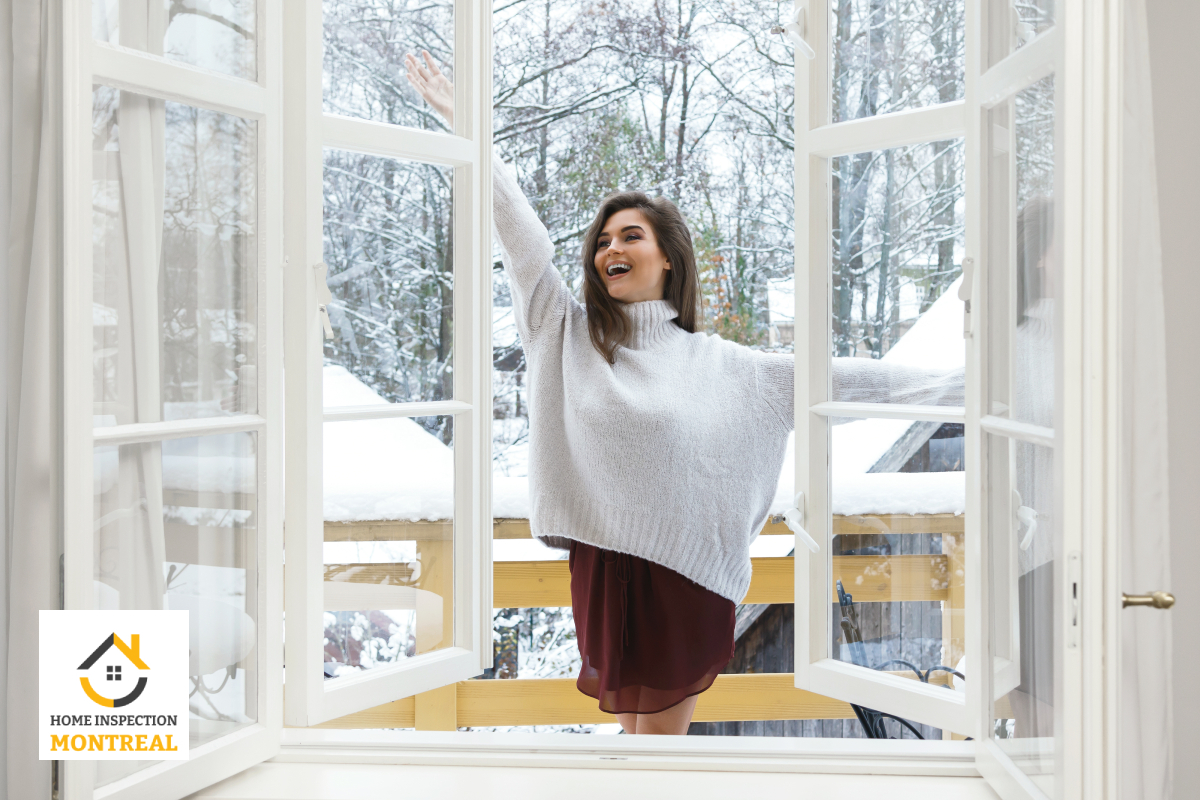 Assessing Structural Integrity and Operation
Assessing Structural Integrity and Operation
The structural integrity and proper operation of windows and doors are crucial for maintaining a home’s security and energy efficiency. Inspectors examine the frames for signs of damage or rot, particularly in wooden frames, which are more susceptible to weather-related deterioration. Windows and doors are also tested to ensure they open, close, and lock properly.
Difficulty in operating windows or doors could indicate warping due to moisture or improper installation, which could exacerbate heat loss.
Identifying Glazing and Double-Glazing Issues
Modern windows often feature double glazing (or even triple glazing in colder climates) for improved thermal insulation. An inspection will check for the integrity of the glazing, looking for signs of seal failure, such as condensation or fogging between panes.
These issues compromise the window’s insulating properties and require repair or replacement to restore energy efficiency.
Verifying the Presence of Weather Stripping and Draft Excluders
Weatherstripping and draft excluders are essential for enhancing the energy efficiency of windows and doors. Inspectors verify their presence and condition, checking for gaps, wear, or improper installation. These materials are inexpensive to replace or upgrade and can significantly impact a home’s warmth and energy consumption during winter.
Recommendations for Improvement
After the inspection, I’ve provided detailed recommendations for necessary repairs or improvements. These may include resealing or replacing weather stripping, upgrading to more energy-efficient windows or doors, or addressing moisture issues to prevent structural damage and improve indoor air quality.
Window and door inspections are vital components of the home inspection process, particularly in winter when the efficiency and comfort of a home are at stake. Inspectors can identify potential issues that compromise a home’s warmth and energy efficiency through meticulous evaluation.
Addressing these issues contributes to a more comfortable living environment and significant energy savings over the colder months. For homeowners in Montreal and similar climates, understanding and acting on the findings of a window and door inspection can make a substantial difference in weathering the winter comfortably and economically.
Challenges of Winter Home Inspections
Conducting home inspections during Montreal’s winter presents unique challenges, such as:
- Snow Cover: Heavy snowfall can obscure parts of the property, making it difficult to inspect the roof, foundation, and outdoor structures.
- Cold Temperatures: Extreme cold can affect the inspector’s ability to examine outdoor components thoroughly and may pose safety risks.
- Limited Daylight: Shorter days reduce inspection time, necessitating efficient time management.
Despite these challenges, winter inspections offer valuable insights into a home’s ability to withstand the cold season’s demands.
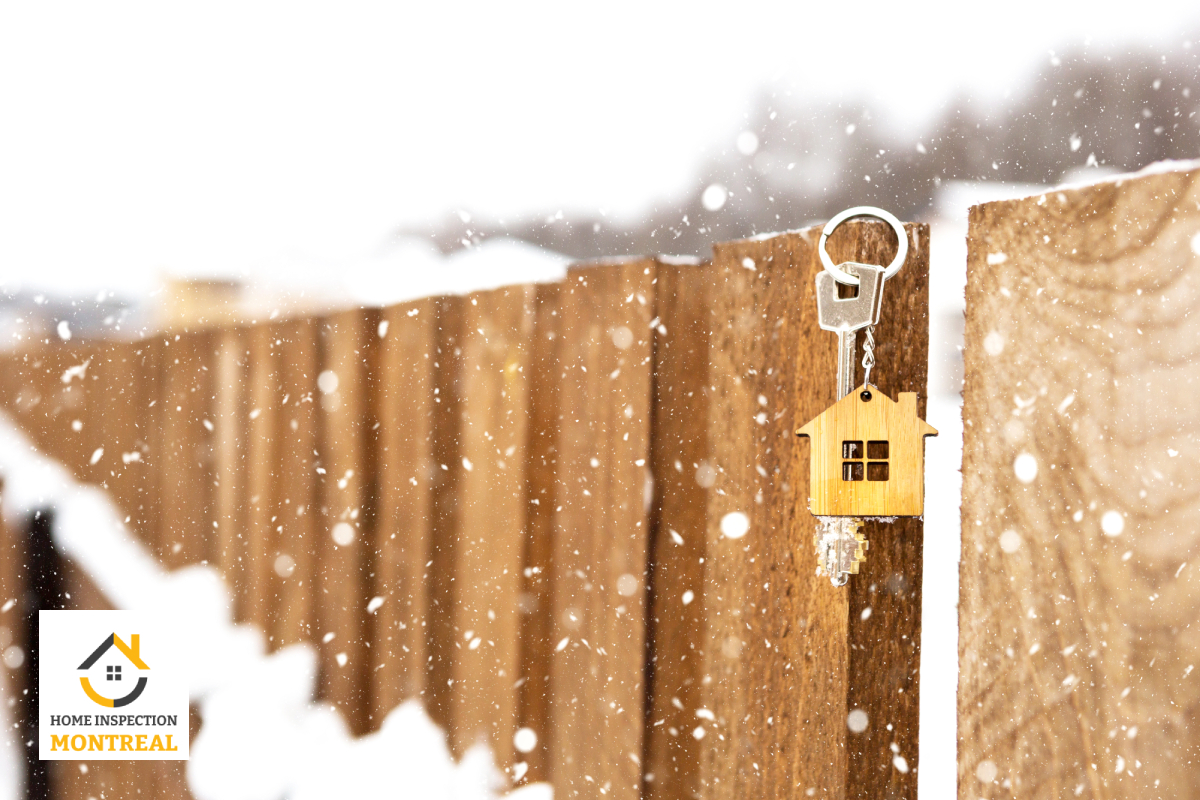 Why Home Inspection Montreal, CA is a Top Choice
Why Home Inspection Montreal, CA is a Top Choice
When it comes to choosing a home inspection service in Montreal, particularly during the challenging winter months, Farzin Sedaghat at Home Inspection Montreal Ca emerges as a leading option for several reasons:
- Expertise in Winter Inspections: Their inspectors are well-versed in the specific challenges and requirements of conducting inspections in winter. They possess the knowledge and experience to identify problematic issues in cold weather.
- Comprehensive Services: From thermal imaging to insulation assessment and heat loss detection to detailed assessments of heating systems and plumbing, Farzin Sedaghat at Home Inspection Montreal, CA, offers a thorough inspection service that is particularly beneficial in winter.
- Timely and Detailed Reports: Understanding the urgency of real estate transactions, especially in the fast-paced Montreal market, Farzin Sedaghat at Home Inspection Montreal CA provides detailed, easy-to-understand reports, helping buyers make informed decisions.
- Customer Satisfaction: With a strong focus on customer satisfaction, Farzin Sedaghat ensures that clients are fully informed about the condition of the property and any potential winter-related concerns. Their inspectors are available for follow-up questions, providing a level of service that goes beyond the inspection itself.
Conclusion
Winter in Montreal brings its own set of challenges to the home inspection process, from the need to closely examine a property’s ability to retain heat to the difficulties posed by snow and ice; despite these challenges, or perhaps because of them, the value of a thorough home inspection during this season cannot be overstated. It is a critical step in ensuring that properties can withstand the harsh Canadian winter, offering peace of mind to buyers and sellers alike.
Among the various home inspection services available in Montreal, Farzin Sedaghat stands out for its expertise, comprehensive services, and commitment to customer satisfaction. His experience navigating the unique challenges of winter inspections makes them an invaluable partner in home-buying. Choosing Farzin Sedaghat means opting for a service that ensures thoroughness, reliability, and an in-depth understanding of what it takes to make a home in Montreal truly winter-ready.
If you are searching for one of the top home inspectors in Montreal, Home Inspection Montreal stands out as one of the best in the region, offering comprehensive, detailed, and professional home inspection services tailored to the unique needs of homes in Montreal.
If you are looking for the best home inspector in Montreal, Canada, Contact Us (514) 561-4515


